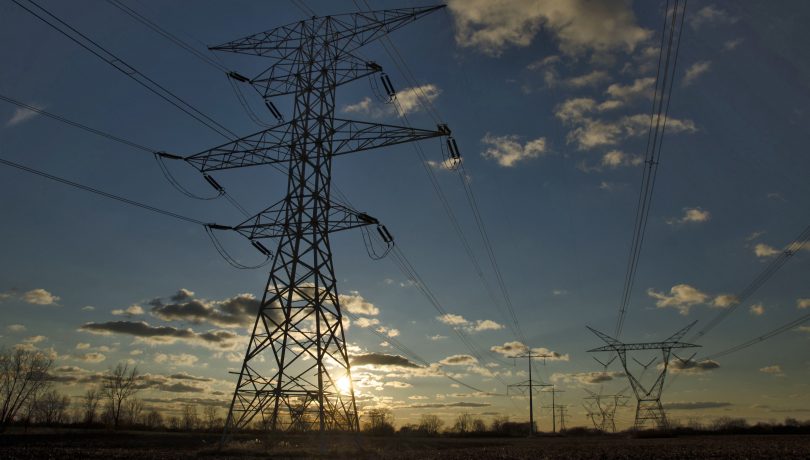Migrants from non-English speaking backgrounds are struggling to navigate Victoria’s increasingly complex energy market, according to a number of concerned Victorian community organisations.
The Consumer Action Law Centre (CALC), which gives free legal advice and financial counselling to consumers across Victoria, has reported a “massive upturn” in the clients it refers to the Energy and Water Ombudsman since January this year.
Of the people referred to the ombudsman, over half (55 per cent) spoke a language other than English at home, even though this group represented approximately ten per cent of the calls to centre. In Victoria only 26 per cent of the population speaks a language other than English at home.

Consumer Action Law Centre’s director of policy and campaigns Denise Boyd said the energy market has become exceptionally complex, with literally hundreds of energy offers on the market for any one residence, making the selection of an appropriate retailer and tariff a difficult exercise.
“At the moment there is absolutely no obligation on the company, on the energy retailer, to make sure the consumer gets the best deal. It’s up to the consumer to shop around and find the best deal,” Ms Boyd said.
“It’s complicated for a native English speaker like myself, I cannot imagine how challenging that must be for newly arrived migrants and people from culturally and linguistically diverse backgrounds”.

Ms Boyd said that energy is an essential service for households and businesses, critical to heating, cooling, lighting and the appliances that are essential for modern-day living.
“Access to an essential service should be easy, it shouldn’t have to be a job in order to try and find the services that you need”, Ms Boyd said.
– YouTube
Enjoy the videos and music you love, upload original content, and share it all with friends, family, and the world on YouTube.
CALC has also raised concerns about the transparency of energy pricing, in particular with discounted energy offers. A recent report by Victoria’s Essential Services Commission found that some heavily promoted discounts from energy retailers actually offer similar or worse rates to non-discounted offers.

Kildonan UnitingCare, a community organisation that offers support services for energy issues, has seen a similar trend, with 40 per cent of people accessing their services coming from culturally and linguistically diverse backgrounds.
Kildonan energy and financial inclusion senior manager Anna Matina said that for their migrant clients, utility bills are the number one source of financial stress.
“Our volumes this year, even in the last 3 months, have just skyrocketed. We are struggling to keep up. And we’re hearing the same from the retailers, hardship numbers are at an all-time high,” Ms Matina said.
The comments come amid growing debate about energy affordability. Victoria’s electricity disconnection rates have risen substantially in recent years and suburbs with the highest disconnection rates also have a high percentage of residents who speak a language other than English at home.


Kildonan team leader Jane Goncalves said migrants face many hurdles when navigating the energy market, including language and cultural barriers, which impact on their ability to make informed decisions.
Ms Goncalves said the reliance on the Internet for energy market communications is a form of “digital exclusion” for those without adequate computer access and literacy and that the language itself – in particular the use of technical jargon – is problematic, making it hard even for migrants with a high level of English.
Kildonan is also concerned that many migrants have limited awareness about hardship programs and government support, as well as a limited ability to advocate on their own behalf, especially as interpreter services are not always available.
Ms Matina said that complex application processes are becoming barriers to equitable access to government funded energy rebates, concessions and relief schemes, such as the Victorian government’s Utility Relief Grant, which offers up to $1500 in utility support payments every two years.
“I think I would struggle to fill in that form. It’s pages long and it’s a real barrier for people who are actually entitled to get assistance,” Ms Matina said.
As part of its work, Kildonan UnitingCare runs in-home energy visits, providing assistance with paperwork, bills and helping households increase their energy efficiency and literacy. Kildonan has completed over one thousand home visits this year with positive results, but the service is limited to people who come within the organisation’s eligibility requirements and not the wider community.

Research fellow at RMIT University’s centre for urban research Dr Larissa Nicholls said the Kildonan and CALC figures suggest people who speak a language other than English at home experience more difficulty resolving issues with their energy retailer, leaving them at a greater risk of disconnection.
Dr Nicholls said that the figures are particularly concerning because migrants are less likely to know about organisations and services to assist them with energy issues.
“Just how many migrant households struggle to resolve problems with their retailer and don’t show up in this data because they don’t know where to go for help?“
Dr Nicholls said the energy market needs to be simplified, so that people can make a decision about a tariff without fearing that they are paying more than they should.
“The current market is designed based on the idea that everyone has got really good literacy and numeracy skills and can do all the calculations they need to find the best deal. In reality, most people don’t have that,” Dr Nicholls said.
As well as addressing the complexity of the market, Dr Nicholls said that face-to-face services are crucial for providing equitable support services for the community.
“I don’t think its enough for us to have information on a website, or on paper somewhere in an office. We need to have face-to-face services available. There needs to be specific programs funded by the government to help,” Dr Nicholls said.
– YouTube
Enjoy the videos and music you love, upload original content, and share it all with friends, family, and the world on YouTube.
The concerns raised about the energy market come after a recent bipartisan review into the Electricity and Gas Retail Markets in Victoria found that energy market deregulation has failed consumers, with the average Victorian paying 21 per cent more than the best available offer.
The Andrews government ordered the review in the wake of rising power prices. Since 2006 prices have increased by an average of 12 per cent each year, far in excess of inflation.
The review found the cheapest offers were only achievable by consumers who were highly knowledgeable and regularly switched retailers.
The Victorian government will formally respond to the bipartisan review by the end of year.
Photo credit: Michael Kappel via VisualHunt.com / CC BY-NC






